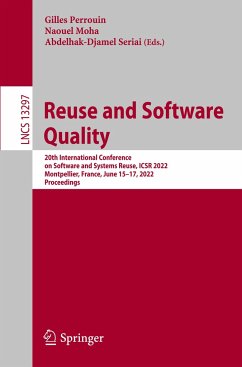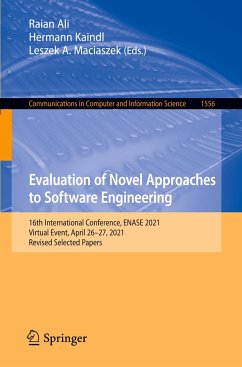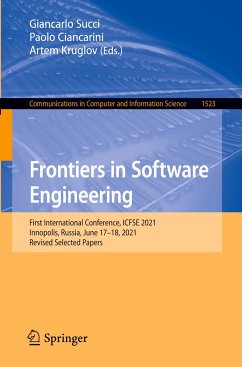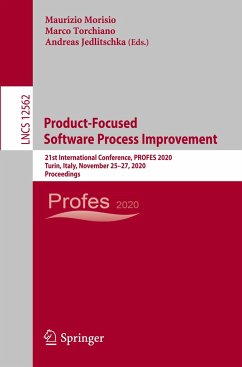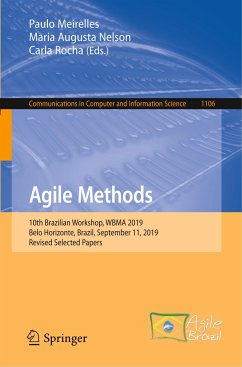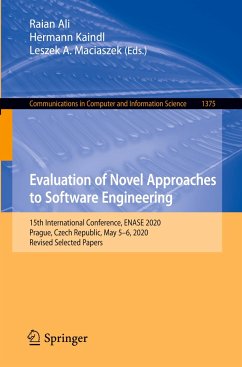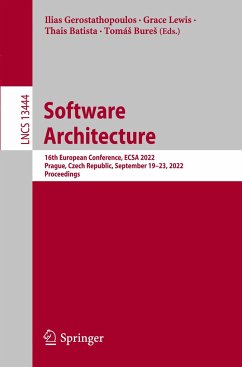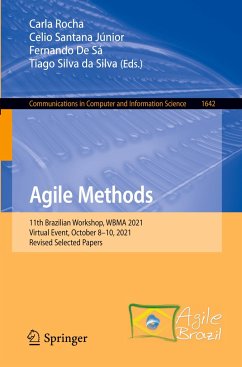
Reuse in Emerging Software Engineering Practices
19th International Conference on Software and Systems Reuse, ICSR 2020, Hammamet, Tunisia, December 2-4, 2020, Proceedings
Herausgegeben: Ben Sassi, Sihem; Ducasse, Stéphane; Mili, Hafedh

PAYBACK Punkte
19 °P sammeln!
This book constitutes the proceedings of the 19th International Conference on Software and Systems Reuse, ICSR 2020, held in Hammamet, Tunesia in December 2020. Due to COVID-19 pandemic the Conference was held virtually.
The 16 full papers and 2 short papers included in this book were carefully reviewed and selected from 60 submissions. The papers were organized in topical sections named: modelling, reuse in practice, reengineering, recommendation, and empirical analysis.
The 16 full papers and 2 short papers included in this book were carefully reviewed and selected from 60 submissions. The papers were organized in topical sections named: modelling, reuse in practice, reengineering, recommendation, and empirical analysis.






